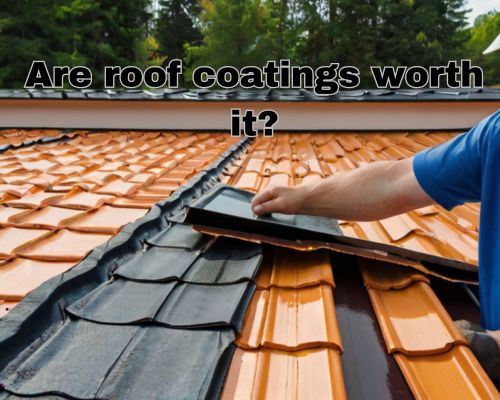A ceiling leak is a problem that can cause significant damage if not addressed promptly. Water damage might lead to mold growth, structural weakening, and costly repairs.
The severity of a ceiling leak often depends on the source and duration of the leak. Persistent issues could indicate a more serious underlying problem.

It’s essential to determine whether the leak results from a minor issue, like poor caulking around a tub, or something more severe, such as a broken pipe or damaged roof.
Frequent dampness, especially when there hasn’t been rainfall, might suggest issues beyond surface level, requiring immediate attention.
Recognizing these signs early can prevent small leaks from escalating into major concerns.
Understanding what might be going on with your ceiling can save you both time and money. Some leaks can be fixed with a bit of DIY knowledge, while others may need a professional’s expertise like CJ Commercial Roofing NJ.
Spot any quick-growing stains or sagging areas, as these signs are often indicative of a more serious problem. Being proactive can ensure the integrity and safety of your home.
Determining the Severity of a Ceiling Leak
Identifying a serious ceiling leak is crucial for preventing further water damage. Recognizing signs like bubbling or sagging can highlight problems needing immediate attention.
Understanding the causes of leaks guides you in addressing the root issue effectively.
Identifying Signs of a Serious Leak
Ceiling leaks often manifest through visible and olfactory changes.
You may notice water stains with dark, yellow, or rust coloring, indicating prolonged exposure.
Bubbled paint or peeling can show moisture damage. A sagging ceiling or pooling water suggests potential structural damage and possibly a compromised foundation.
Additionally, musty odors indicate mold or mildew growth, a common issue in cases of severe leaks.
Checking for these signs regularly helps in recognizing and addressing leaks swiftly, reducing further damage to your home’s structure and aesthetics.
Understanding the Causes of Ceiling Leaks
Ceiling leaks have various causes, which require careful diagnosis.
Flashing issues on roofing can allow water penetration. Poor installation or maintenance often lead to settling and movement, causing ceiling cracks.
Distinguishing between types, like spiderweb cracks or direct moisture damage, is vital.
Water pooling on surfaces and joint compound deterioration imply a leak from a plumbing system above, demanding immediate action.
Building movement or poor workmanship during construction can exacerbate these issues.
Correctly identifying the cause ensures proper and effective repairs, preventing recurrence and minimizing expenses.
Effective Solutions and Preventative Measures
Addressing a ceiling leak promptly can save you from extensive damage and costly repairs. Ensuring proper maintenance and understanding when to seek professional help are essential steps to protect your home.
Repairing and Preventing Future Leaks
To begin, identify and stop the leak using a tarp or shutting off water supply.
Once the area is dry, inspect for water stains or musty smells that might indicate further issues.
If gutters are clogged, clean them to prevent overflow that could contribute to leaks.
Check for missing shingles or roof damage after storms since these can allow water penetration.
Hairline cracks in the ceiling may initially seem minor, but it’s important to repair them using drywall compound to prevent escalation.
Regularly inspect your roof and foundation for any signs of wear.
Routine maintenance, such as sealing small cracks or replacing damaged materials, is crucial to avoid future problems.
Ensuring a well-ventilated attic will also reduce moisture buildup.
Professional Assessment and Repair
For persistent ceiling leaks, engaging a professional roofer or a specialized contractor like CJ Commercial Roofing NJ might be necessary. They can assess roof leaks or plumbing leaks accurately. They can offer diagnostics like infrared moisture scanning to find the source of the leak effectively.
When water damage extends beyond superficial ceiling cracks, more advanced techniques and materials might be required. A professional can determine if your situation calls for more serious repairs. This includes reinforcing structural components or conducting a thorough foundation inspection.
Know when to call a professional by evaluating the severity of ceiling damage and the complexity of the repair needed. It ensures a comprehensive solution that addresses not just immediate leaks but also long-term prevention strategies.


